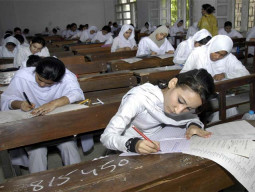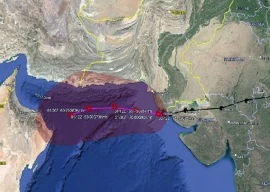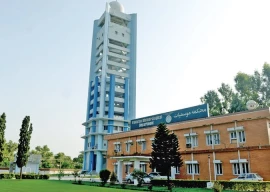The Aghaz-e-Haqooq-e-Balochistan package was announced with a lot of fanfare. In addition to the package, financial autonomy was given to the provinces, with special emphasis on Balochistan. Autonomy in governance was also given in the form of abolishing the concurrent list. Many hoped these measures would begin to heal the wounds of the Baloch. However, none of the measures have been fully implemented and the Baloch have no reason to believe that the “forces that be” will allow them to be enforced. This, however, is the tip of the iceberg. The real issue is that the Baloch feel that they are being wronged by the federation.
Other than Balochistan, all the provinces have some stake in the integrity of the country. Sindh has an undeniable stake in the politics of the nation, as can be observed from the successes of the Sindhi-led PPP and the substantial presence of Sindhis in parliament. The denizens of Khyber-Pakhtunkhwa have great influence not only in the bureaucracy but also in the army. And Punjab, quite unremarkably, has a presence in pretty much every institution in the country by virtue of its sheer population.
However, the same cannot be said of Balochistan. Its representation in the National Assembly isn’t enough for it to get its way or even nudge the other stakeholders into taking it on board. It has a negligible presence in the army, and the situation is unlikely to change anytime soon in light of repeated army operations.
Their presence is negligible in the bureaucracy, and they have been consistently forced from national politics to ethnic-based fringe politics. A case in point would be Akbar Bugti, who started off as a supporter of the federation and ended up as a nationalist fighting the Pakistani army and its “oppressive policies”.
This is why the Baloch feel so aggrieved. When it comes to issues important to them, national politics don’t seem to have the time to accommodate their concerns, and they don’t have the capability to forcibly agitate the same on their own. A telling example would be the missing persons case. The issue has a special significance for the people in Balochistan but due to their lack of representation in the corridors of power they are helpless in having the issue addressed. The executive doesn’t seem to care too much about those missing, army actions are still taking place in Balochistan, and all this is happening whilst political parties are quibbling about whether the president should hold one post or two. All in all, the Baloch have no real forum where their grievances can be addressed.
The government and other stakeholders should advance the concerns of those unable to do so themselves. And this is exactly what was expected of the relevant officials in the missing persons case. One had felt that even if national solidarity and integrity was too hollow an idea to force officials into action regarding the various injustices being committed, surely the thought of a family weeping in despair and dying a bit everyday in anticipation of the return of their loved one would do the trick. Well, clearly, one thought wrong.
Published in the Express Tribune, May 31st, 2010.
1725173339-0/Untitled-design-(6)1725173339-0-405x300.webp)

















COMMENTS (9)
Comments are moderated and generally will be posted if they are on-topic and not abusive.
For more information, please see our Comments FAQ